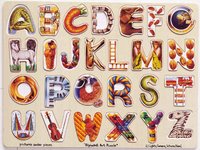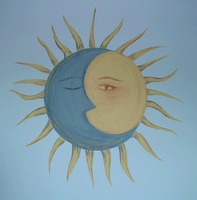Cold in a Love Climate
His marriage was miserable from the beginning, and his relationships with his daughters tenuous at best. I caught of glimpse of both during the six months my mother and I lived with them during our first trip to California. My uncle is unashamedly obsessed with money, mathematics, chess and good health. He always seemed to me an eminently selfish man. He says things about his daughters and his wife that make my blood run cold.
His affair with this young woman shocks me, but not for the reasons I expected. It's adulterous; my aunt won't give him a divorce. It smacks of a mid-life crisis that has gone on for too long. But that's not what discomfits me. Rather, it's my uncle's happiness. He seems aware that his situation is morally problematic, and yet he confesses that he hasn't gotten along with anyone in his life as well as with this young woman. I can't imagine how she can love him -- I would give an arm and a leg to talk to her, or at least to observe her -- but the fact that she makes him happy is astounding and makes me think that she's not faking it. Perhaps she's after his money, though he doesn't have that much, and perhaps in the back of his mind he's aware of that. But then there's the happiness, and people are willing to give up a lot for happiness, even their dignity, social acceptance, morality.
My mother is convinced that my uncle has lost a marble to be playing house with this young woman. She keeps poking and prodding at him to move back to California, where he owns a house that's now rented out, or to Michigan where his wife takes care of their only granddaughter. He visited my parents last week, and my mother said to him, "Just stay in California, don't go back next week." (This speaks volumes about my mother.)I blurted out that he can't not go back; his lady friend (I used exactly these words, which speaks volumes about me) is waiting for him in Romania. In what is the only gesture of affection I have ever seen from my uncle in my entire life, he came up to me and shook my hand and gave me a stiff hug. "Thank you," he said, "thank you."
I was mortified. I don't agree with what he's doing, but I don't think there's any good in pestering him to change course. He's happy, and that counts for something. But I'm of two minds about his situation, and I was uneasy about giving him and my parents the impression that I wasn't. I didn't want to suggest that happiness is worth any sacrifices of moral principle. But I didn't qualify what I had said. The conversation turned to other things.
It was only while I was driving back home that the meaning of my words started to rankle me. I come back again and again to the problem of expressing myself, to how good my words are at articulating thought and feeling. I come back again and again to this suspicion that they are much more slippery than they seem at first, much more powerful sometimes than the mind and the mouth that uses them. I felt that words betrayed me in the exchange with my uncle and my mother. I felt that I betrayed them, too.
I'm waxing pretentious and grandiose here, but I'm not as sorry as I should be. Maybe I'm like my uncle in this. My obsession with words pushes me, every once in a while, into giving up modesty and restraint. It's not safe to play around with words, as it isn't to play around with love. It can make you to lose your head, at worst, and at best your respectability; it can leave you out in the cold and in doubt of whether you deserve to be anywhere else.



